Interview to Larry Harlow
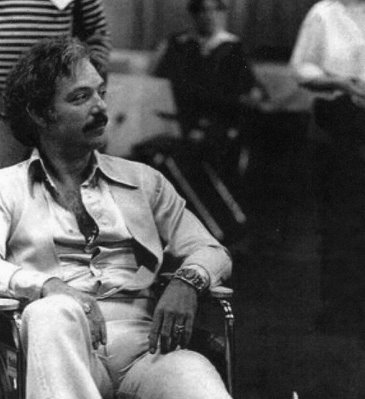
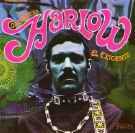
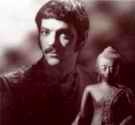
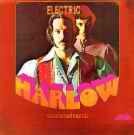
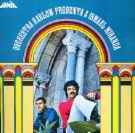
Larry Harlow is a master legend of Latin music we now call Salsa. He began studying music at the age of 5, following his father's footsteps. He studied at the most prestigious music schools. During mid 50’s, he was so fascinated by Latin rhythms that he travelled and lived in Cuba to study the real Afro-Cuban sound that became known as "Salsa". As an expert "Salsa" artist, he returned to New York to develop his own style and orchestra and later to help create the internationally famous "Fania All Stars" group. While a member and producer of the Fania All Stars for fifteen years, Larry Harlow was not only a recording star with 30 solo albums and 15 with the All Stars, but also a producer of over 160 recordings for other artists.
You grew up in Spanish Harlem. Is this the reason you got involved in Latin Music?
I grew up in Brooklyn, went to high school in Harlem and was first exposed to Musica Latina there.
How important was the decision to go to Cuba in the late 50’s to learn all the principles of Afro Cuban Music right up to the Popular Dances, and how did it influence the formation of your own Latin Style and Salsa too.
Went to Cuba on a Christmas vacation in 1956 for the first time with Mambonicks Kids who were into Latin dancing and music.
Then you formed your first band?
Started Orquestra Harlow in 1964 after several trips to Cuba and years of playing as a sideman with various
bands in NYC area.
What were your first musical influences?
Joe Loce, Noro Morales, Early TP Piccadilly boys and later the big band, Machito and all the Jazz greats.
How did it come about that a not-Latino, became the most important man in Latin Music?
I got very good at what I do. Created new, fresh ideas and developed young artists for recordings. I also studied audio engineering and became a prolific producer of Latin recordings.
Everybody knows you for your six golden records and your four Billboard awards: Pianist of the Year, Latin Producer of the Year, Concert of the Year and Arranger of the year. You are also well known for being the first Latin Music artist to use psychedelic lights at your concerts, adding a completely different element to the scene. I really like this thing. Can you tell me something about that?
When it was in to be psychedelic, I made a light tower that was portable and taught a young guy how to operate them. Wrote a song about them and it kept us working for about 2 years. I also was into the whole ear as well as clothing and drugs.
What are your memories of your experience of the Fania period?
Everything!
You play a lot of instruments like Oboe, Bass, Flute, Vibraphone and of course the Piano, was this important to the Latin Sound change that you introduced, trombones playing together with trumpets, a sound that everybody copied later on?
NO, I just wanted to have a different sound. No one had utilized the trumpet/trombone sound before in a salsa format. Today it is standard.
You were one of the creators of the Fania All Stars and together with this band you released 15 LP’s. How did the creation of the band come about?
Well I did not put the band together, Pacheco did that along with Masucci. The idea of an all-star band and a movie to promote them was mine. The formula was simple: Bandleader / singer / sideman from each of the main Fania orchestras.
Can you tell me something that no one knows about the “Our Latin Thing” film project? Some out-takes or some little known moments.
There are hundreds, we worked for one year, Leon and myself, razor blade cutting by hand, the first Fania film, no one made any money but we had a lot of fun and all became stars because of this film.
What does it feel like to play in front of 80,000 people who know "Lucumi" music, what is the archetype of Mambo / Salsa music?
Unfortunatly the public in Zaire were not into the "Lucumi music scene". The tourists were there for the fight and we were there to entertain them. The experience was awesome and seeing Africa for the first time was wonderful especially performing and mixing with all those great musicians and entertainers for 10 days.
Tell me your impressions of the 3 day concert in Africa, about James Brown, the Jazz Crusaders and Mohammed Alì, what were your feelings?
It was the experience of a lifetime. Not only the music but to hang with all those great stars and get to know them. Even with Ali and Foreman, who knew that Bundidi Brown was a great stride piano player, we spent hours together and to visit the Presidential Palace and museums were wonderful.
What do you think about the younger generation now looking for your 60’s and 70’s albums and 45’s to play them, not in Salsa and Soul clubs, but in R’n’B clubs?
I think it is great that another generation is using the genre for something.
What do you think about the fusion between Funk and Latin music in the 70’s? Did you ever experiment with Latin Funk?
Had a band called Ambergris in 69-70 signed to Paramount records that combined Latin and Funk. Was a passing fad.
What do you think about today’s electronic music using samples of 60’s and 70’s Latin music to create a new evolution of Latin Sounds?
I hope they don’t forget to send a royalty check… Not my cup of tea.
Do you have any plans for the immediate future? Albums, tours, films, works?
I will do Hommy opera again in Puerto Rico with different singers and some new music. Playing some Latin Jazz lately, producing some new artists and experimenting with video conferencing music programs to universities around the globe.
Labels: alessio berto, boogaloo, fania all stars, jazz, joe bataan, larry harlow, latin, nueva york, soul, vampisoul

<< Home